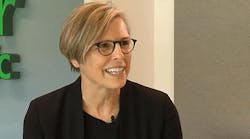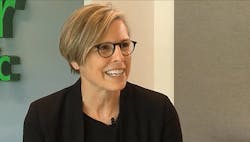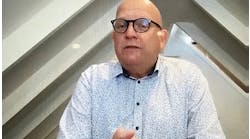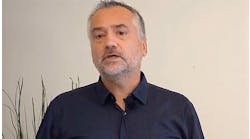Automation dilemma or opportunity?
“Universal automation will enable us to be ready for the next generation of industry.” Schneider Electric’s Nathalie Marcotte and Michael Martinez discussed the technological and demographic trends reshaping industrial automation.
Disruptions arising from the COVID pandemic and climate change, together with accelerating technologies and shifting demographics, have some process automation professionals understandably wondering where next to turn. But Nathalie Marcotte and Michael Martinez have decades of experience with evolving technologies and strategies in the industrial automation space, and their opening discussion of the current “automation dilemma” rather quickly began to sound like an abundance of opportunities.
Marcotte is president of process automation for Schneider Electric and Martinez serves as EcoStruxure Foxboro DCS leader. The pair kickstarted this week’s Innovation Talks event for users of the company’s Foxboro process automation systems and Triconex safety systems, revealing their enthusiasm for this new chapter of automation we’re all experiencing. Digital initiatives are enabling customers to achieve full potential from existing assets; users are demanding next-generation systems that are more flexible and interoperable; and digital transformation is making people's jobs more efficient, resilient and effective.
“Universal automation will enable us to be ready for the next generation of industry,” said Martinez in the opening to his discussion with Marcotte, who added, “This is all about what this technology does for our clients.”
The pair agreed that the pandemic has accelerated automation programs—including quicker adoption of automated processes, more remote and unmanned operations. “The fear of digital has been relieved,” explained Marcotte, who detailed how this new confidence is enabling greater resiliency in industrial initiatives and the supply chains that fuel them. She referenced a bio-diesel customer that turned to Schneider to help them meet new sustainability goals and enhance their digital integration and automation capabilities—all within a cramped, brownfield environment. The result was a 15% reduction in CAPEX, quicker project delivery and the ability to meet aggressive sustainability goals. “And we were able to accomplish this, powered by digital, in a fully virtual environment during COVID,” she shared.
The two discussed the growing importance of sustainability in the industrial space, among manufacturers, among young professionals joining those manufacturing teams, and among consumers who, as Martinez noted, are making purchasing decisions based on products’ environmental impact. “This affects the entire supply chain,” he noted. “From the purchaser to the manufacturer and all other stakeholders.”
They discussed the criticality of system openness, with hardware and software elements decoupled to enable flexibility for customers who can evolve with open standards. “They can use different software from different suppliers and mix and match them,” said Marcotte. “Schneider Electric is a proud early adopter of this type of openness, which enables systems to be truly interoperable and will change the ways we optimize efficiency and reliability; customers can layer in some artificial intelligence, some predictive analytics, some safety elements in real time. These are rich additions that enable a new level of automation for sites and the operators working within them.”
They discussed the need for more electricity generated from renewable sources to satisfy a growing global demand for access to energy, along with the emergence of hydrogen, biofuel and other less carbon-intensive alternatives.
“All of these elements are part of our strategy to deliver resiliency, provide energy and process efficiency, and establish real openness in systems,” summed Marcotte. “We at Schneider are here to support the role of people as all this changes and help them with all aspects of their transitions.”
Our editors are reporting live from the virtual events. Keep up-to-date with the latest news from the event here!
The method of that support?
Giving the next generation of automation professionals the ability to fully control processes and meet new performance outcomes courtesy of a suite of Schneider Electric solutions to layer on top of the EcoStruxure stack. Customers can predict maintenance problems and tackle them early to avoid upsetting processes. Customers can reduce inefficiencies while creating more sustainable operations in moving toward a carbon-neutral future. Customers can learn to optimize assets and processes already in place to discover unforeseen benefits with safety, cybersecurity and reliability.
Younger consumers of those manufacturers’ products—and the next generation of industry professionals who are adopting this mission—are eager partners. Both panelists referenced their own children as examples of how the next generation is more purpose-driven in every aspect of their purchasing and professional lives. “They want to make a difference with these new technologies,” said Martinez, who highlighted Schneider’s own smart factories as current examples of using digital automation solutions (and putting empowered workforces in the middle of these programs) for true energy benefits and efficiency gains. “These are the outcomes that purpose-driven people are looking for.”
To learn more about how Schneider Electric is enabling more open, flexible and continuously current automation systems that enable safe and sustainable industrial operations, join this week's Innovation Talks already in progress, including this full presentation.





